Click here and press the right key for the next slide.
(This may not work on mobile or ipad. You can try using chrome or firefox, but even that may fail. Sorry.)
(If the slides don’t work, you can still use any direct links to recordings.)
also ...
Press the left key to go backwards (or swipe right)
Press n to toggle whether notes are shown (or add '?notes' to the url before the #)
Press m or double tap to slide thumbnails (menu)
Press ? at any time to show the keyboard shortcuts
Ethics from Psychology?
‘In putting forward an account of light, the first point I want to draw to your attention is that it is possible for there to be a difference between the sensation that we have of it, that is, the idea that we form of it in our imagination through the intermediary of our eyes, and what it is in the objects that produces the sensation in us, that is, what it is in the flame or in the Sun that we term ‘light’’
Descartes, The World (AT 3)

sensory perceptions
do not reveal
the natures of physical phenomena
representational momentum
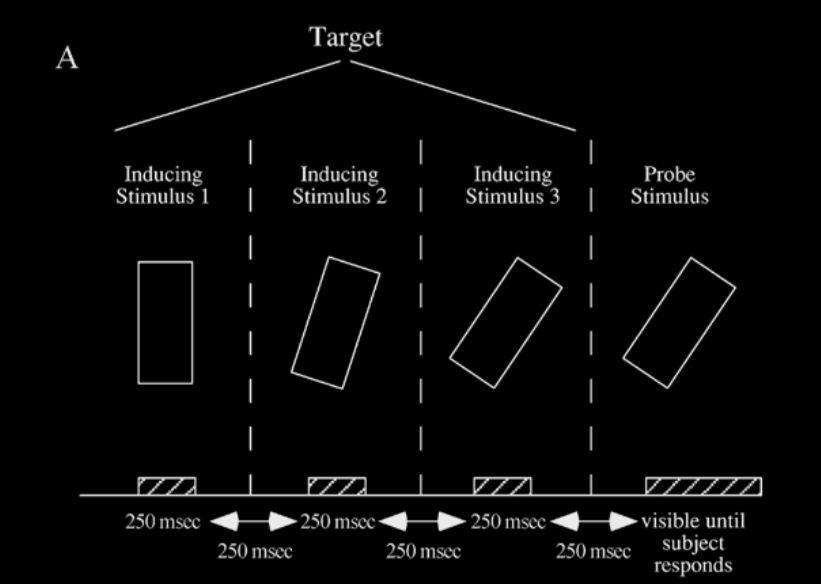

Hubbard 2005, figure 1a; redrawn from Freyd and Finke 1984, figure 1
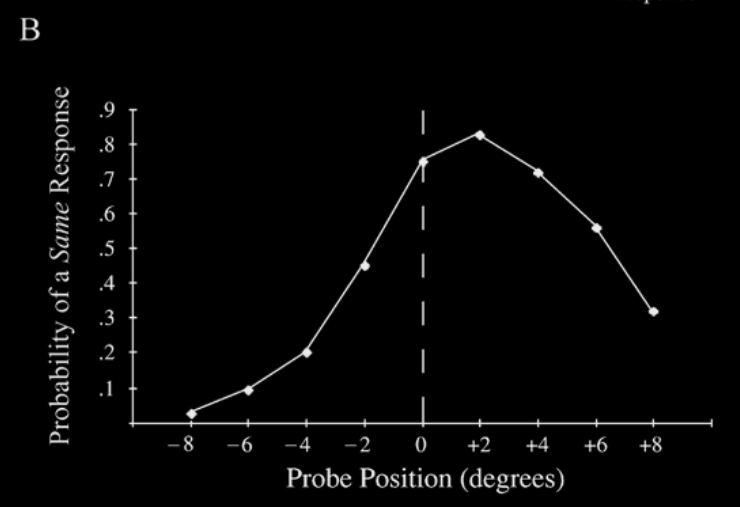
Hubbard 2005, figure 1b; drawn from Freyd and Finke 1984, table 1
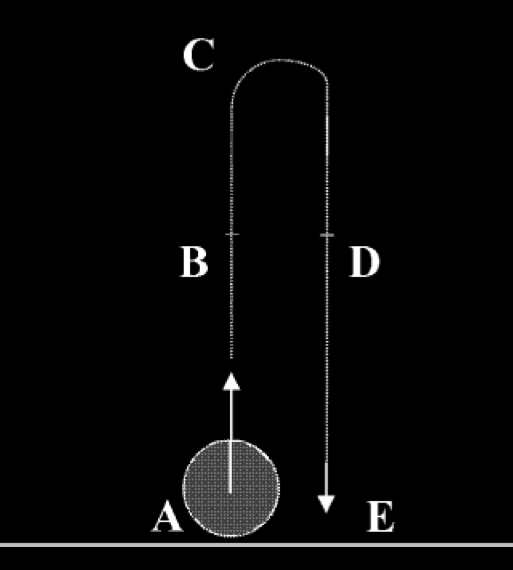
Kozhevnikov & Hegarty (2001, figure 1)
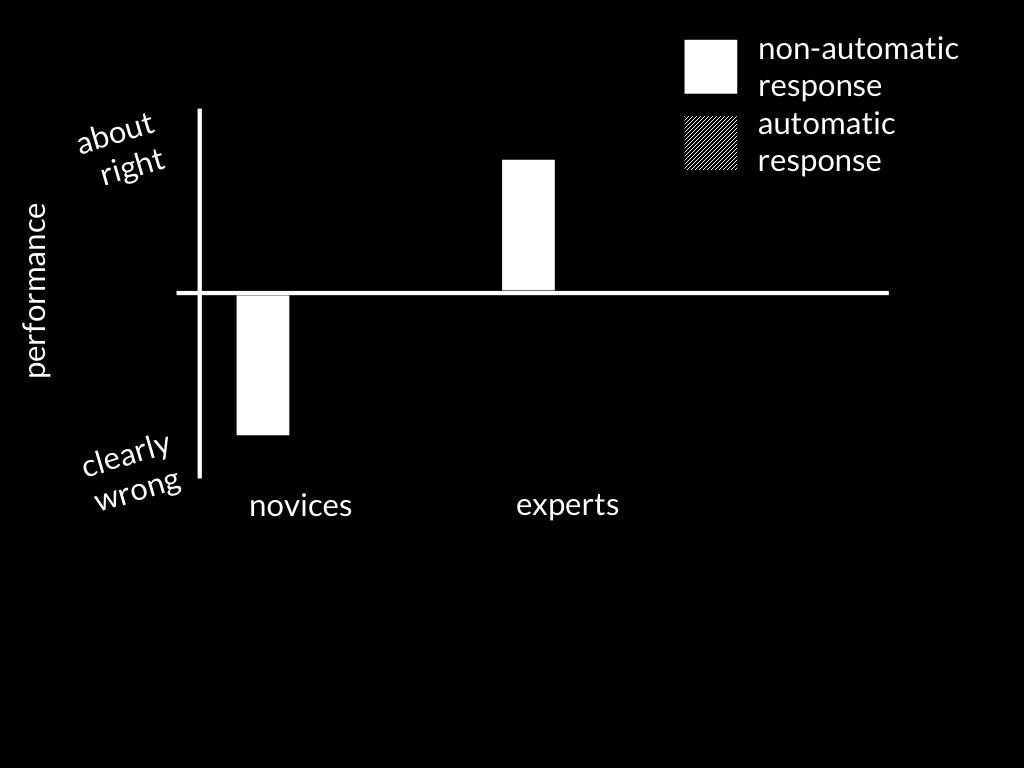
simplified from Kozhevnikov & Hegarty (2001)
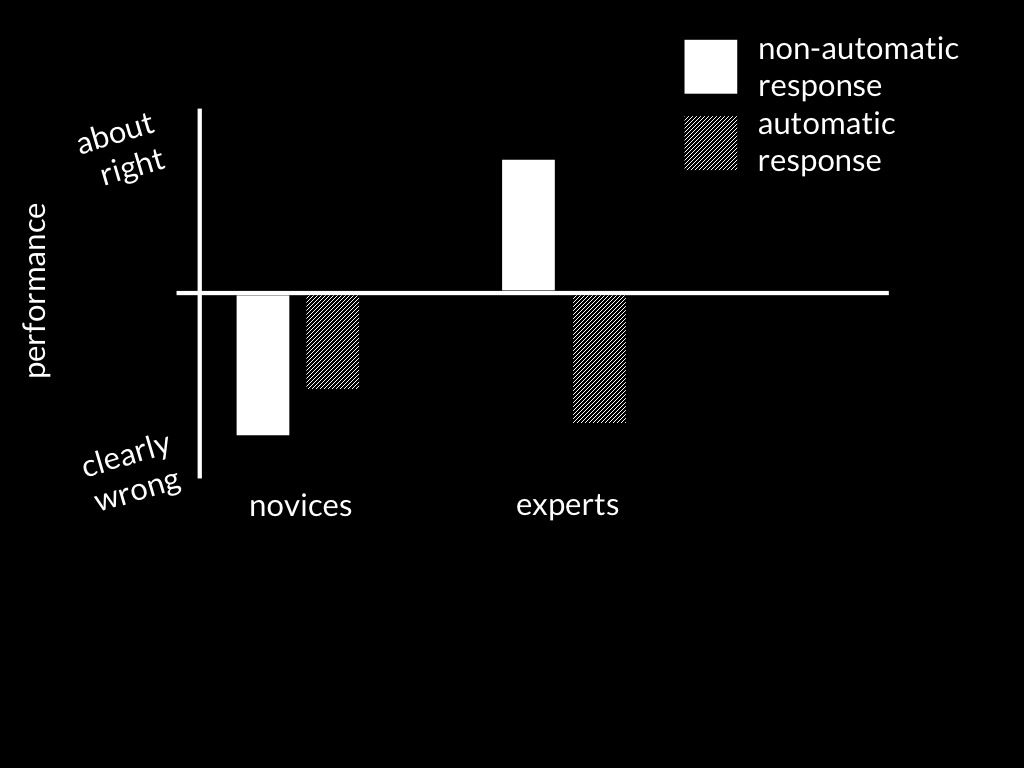
simplified from Kozhevnikov & Hegarty (2001)
| content | process |
| impetus | fast |
| Newtonian | slow |
‘To extrapolate objects’ motion on the basis of [e.g. Newtonian] physical principles, one should have assessed and evaluated the presence and magnitude of such imperceptible forces as friction and air resistance ... This would require a time-consuming analysis that is not always possible.
‘In order to have a survival advantage, the process of extrapolation should be fast and effortless, without much conscious deliberation.
‘Impetus theory allows us to extrapolate objects’ motion quickly and without large demands on attentional resources.’
Kozhevnikov and Heggarty (2001, p. 450)
Perceptual processes, like all cognitive processes, involve speed-accuracy trade-offs.
To trade accuracy for gains in speed, use a simpler model.
Being uncritically guided by perceptual processes would limit us to Aristotelian theories of the physical.
ethics?
‘one may think of physical moral theory at first [...]
as the attempt to describe our moralperceptual capacity
[...]
what is required is
a formulation of a set of principles which,
when conjoined to our beliefs and knowledge of the circumstances,
would lead us to make these judgments with their supporting reasons
were we to apply these principles’
Rawls, 1999 p. 41
‘Advances in our understanding of [moral psychology] do not themselves directly imply any normative conclusions, but they undermine some conceptions of doing ethics which themselves have normative conclusions. Those conceptions of ethics tend to be too respectful of our intuitions. Our better understanding of ethics gives us grounds for being less respectful of them’
Singer, 2005, p. 349
‘Science can advance ethics by revealing the hidden inner workings of our moral judgments, especially the ones we make intuitively. Once those inner workings are revealed we may have less confidence in some of [...] the ethical theories that are explicitly or implicitly based on them’
Greene, 2014 pp. 695--6
Thanks for the background, but is there an argument?
Preview
1. There is a puzzle about apparently inconsistent patterns in judgement (switch-drop).
2. We can solve the puzzle by invoking a dual-process theory ...
2.a ... where one process is faster; and
2.b the faster process is affective and
2.c less consequentialist.
3. The faster process is unlikely to be reliable in unfamiliar* situations.
4. Therefore, we should rely less on the faster (and less consequentialist) process in unfamiliar* situations.
Switch
Vicki [...] notices an empty boxcar rolling out of control. [...] anyone it hits will die. [...] If Vicki does nothing, the boxcar will hit the five people on the main track [...] If Vicki flips a switch next to her, it will divert the boxcar to the side track where it will hit the one person [...]
Flipping the switch is: [1:2:3:4:5:6:7]:[extremely morally good:::neither good nor bad:::extremely morally bad]
Switch
Vicki [...] notices an empty boxcar rolling out of control. [...] anyone it hits will die. [...] If Vicki does nothing, the boxcar will hit the five people on the main track [...] If Vicki flips a switch next to her, it will divert the boxcar to the side track where it will hit the one person [...]
Flipping the switch is: [extremely morally good:::neither good nor bad:::extremely morally bad]
Drop
Mary [...] notices an empty boxcar rolling out of control. [...] anyone it hits will die. [...] If Mary does nothing, the boxcar will hit the five people on the track. If Mary pulls a lever it will release the bottom of the footbridge and [...] one person will fall onto the track, where the boxcar will hit the one person, slow down because of the one person, and not hit the five people farther down the track.
Pulling the lever is: [extremely morally good:::neither good nor bad:::extremely morally bad]
puzzle
[switch-drop] Why do people tend to respond differently in Switch and Drop?
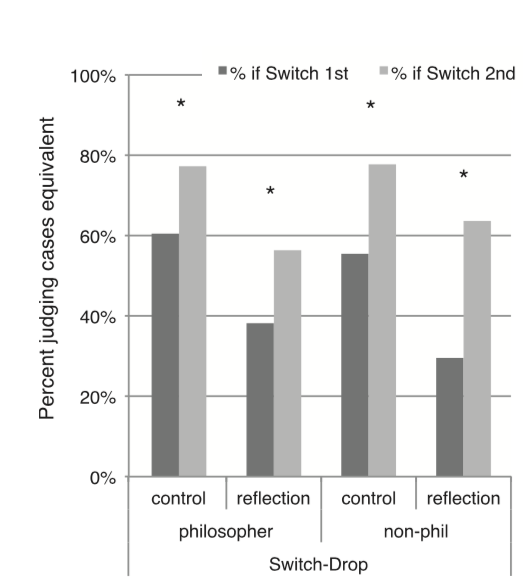
Schwitzgebel & Cushman, 2015 figure 2 (part)
puzzle
[switch-drop] Why do people tend to respond differently in Switch and Drop? (And why are there order effects?)
Preview
1. There is a puzzle about apparently inconsistent patterns in judgement (switch-drop).
2. We can solve the puzzle by invoking a dual-process theory ...
2.a ... where one process is faster; and
2.b the faster process is affective and
2.c less consequentialist.
3. The faster process is unlikely to be reliable in unfamiliar* situations.
4. Therefore, we should rely less on the faster (and less consequentialist) process in unfamiliar* situations.
puzzle
[switch-drop] Why do people tend to respond differently in Switch and Drop? (And why are there order effects?)
Preview
1. There is a puzzle about apparently inconsistent patterns in judgement (switch-drop).
2. We can solve the puzzle by invoking a dual-process theory ...
2.a ... where one process is faster; and
2.b the faster process is affective and
2.c less consequentialist.
3. The faster process is unlikely to be reliable in unfamiliar* situations.
4. Therefore, we should rely less on the faster (and less consequentialist) process in unfamiliar* situations.


Dual Process Theory of Ethical Abilities (core part)
Two (or more) ethical processes are distinct:
the conditions which influence whether they occur,
and which outputs they generate,
do not completely overlap.
[Aside : camera analogy]
‘it’s worth highlighting three ways in which the camera analogy may mislead’
Greene, 2014 p. 698
‘The Central Tension Principle:
Characteristically deontological judgments are preferentially supported by automatic emotional responses processes, while characteristically consequentialist judgments are preferentially supported by conscious reasoning and allied processes of cognitive control’
Greene, 2014 p. 699
Compare: characteristically Impetus judgements are supported by faster* processes while characteristically Newtonian responses are supported by slower* processes.
| content | process |
| deontological | fast |
| consequential | slow |
| impetus | fast |
| Newtonian | slow |
Dual Process Theory of Ethical Abilities (core part)
Two (or more) ethical processes are distinct:
the conditions which influence whether they occur,
and which outputs they generate,
do not completely overlap.
Greene’s Additional Assumptions
One process is faster
[The faster process is affective]
The faster process is less consequentialist
Preview
1. There is a puzzle about apparently inconsistent patterns in judgement (switch-drop).
2. We can solve the puzzle by invoking a dual-process theory ...
2.a ... where one process is faster; and
2.b the faster process is affective and
2.c less consequentialist.
3. The faster process is unlikely to be reliable in unfamiliar* situations.
4. Therefore, we should rely less on the faster (and less consequentialist) process in unfamiliar* situations.
general : speed-accuracy trade-offs
‘To extrapolate objects’ motion on the basis of [e.g. Newtonian] physical principles, one should have assessed and evaluated the presence and magnitude of such imperceptible forces as friction and air resistance ... This would require a time-consuming analysis that is not always possible.
‘In order to have a survival advantage, the process of extrapolation should be fast and effortless, without much conscious deliberation.
‘Impetus theory allows us to extrapolate objects’ motion quickly and without large demands on attentional resources.’
Kozhevnikov and Heggarty (2001, p. 450)
‘Direct Route’
Ought we to condemn incest?
Why do we condemn incest?
Ought we to rely rely on such emotional responses in cases in which there is no special concern about genetic diseases?
Greene, 2014
‘Indirect Route’
Background
‘A dominant theme in normative ethics for the past century or more has been the debate between those who support a systematic normative ethical theory---utilitarianism and other forms of consequentialism have been the leading contenders---and those who ground their normative ethics on [...] intuitions’
‘the chief weapons of opponents of utilitarianism have been examples intended to show that the dictates of utilitarianism clash with moral intuitions that we all share’
Singer, 2005 p. 343
‘genetic transmission, cultural transmission, and learning from personal experience [...] are the only mechanisms known to endow [...] automatic [...] processes with the information they need to function well’
Greene 2014, p. 714
unfamiliar* problems = ‘ones with which we have inadequate evolutionary, cultural, or personal experience’
‘it would be a cognitive miracle if we had reliably good moral instincts about unfamiliar* moral problems’
Greene, 2014 p. 715
‘The No Cognitive Miracles Principle:
When we are dealing with unfamiliar* moral problems, we ought to rely less on [...] automatic emotional responses and more on [...] conscious, controlled reasoning, lest we bank on cognitive miracles.’
Greene, 2014 p. 715
Preview
1. There is a puzzle about apparently inconsistent patterns in judgement (switch-drop).
2. We can solve the puzzle by invoking a dual-process theory ...
2.a ... where one process is faster; and
2.b the faster process is affective and
2.c less consequentialist.
3. The faster process is unlikely to be reliable in unfamiliar* situations.
4. Therefore, we should rely less on the faster (and less consequentialist) process in unfamiliar* situations.
Switch
Vicki [...] notices an empty boxcar rolling out of control. [...] anyone it hits will die. [...] If Vicki does nothing, the boxcar will hit the five people on the main track [...] If Vicki flips a switch next to her, it will divert the boxcar to the side track where it will hit the one person [...]
Flipping the switch is: [extremely morally good:::neither good nor bad:::extremely morally bad]
Drop
Mary [...] notices an empty boxcar rolling out of control. [...] anyone it hits will die. [...] If Mary does nothing, the boxcar will hit the five people on the track. If Mary pulls a lever it will release the bottom of the footbridge and [...] one person will fall onto the track, where the boxcar will hit the one person, slow down because of the one person, and not hit the five people farther down the track.
Pulling the lever is: [extremely morally good:::neither good nor bad:::extremely morally bad]
‘I strongly suspect that [Drop] is unfamiliar*, a bizarre case in which an act of personal violence against an innocent person is the one and only way to promote a much greater good.’
Greene, 2014 p. 716
Preview = reconstruction of Greene
1. There is a puzzle about apparently inconsistent patterns in judgement (switch-drop).
2. We can solve the puzzle by invoking a dual-process theory ...
2.a ... where one process is faster; and
2.b the faster process is affective and
2.c less consequentialist.
3. The faster process is unlikely to be reliable in unfamiliar* situations.
4. Therefore, we should rely less on the faster (and less consequentialist) process in unfamiliar* situations.

conclusion
Perceptual processes, like all cognitive processes, involve speed-accuracy trade-offs.
Being uncritically guided by perceptual processes would limit us to Aristotelian theories of the physical.